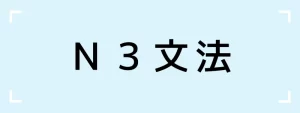接続
名詞+であれ(+名詞+であれ)
名詞+であろうと(+名詞+であろうと)
名詞+だろうが(+名詞+だろうが)
名詞+であろうが(+名詞+であろうが)
名詞+であろうとなかろうと
意味
无论…还是…,都(不)…
不论…还是…,都(不)…
不管是不是…
解説
2つの代表的なものを挙げて、どのような条件や状況であろうと変わらない、関係ない、影響しないことを表します。
例文
(1) 大人であれ子供であれ、人に迷惑をかけてはいけない。
不管是大人还是小孩,都不能给别人添麻烦。
Whether you’re an adult or a child, you must not inconvenience others.
(2) 晴れだろうが、雨だろうが、運動会は決行します。
不管是晴天还是下雨,运动会照常进行。
Whether it’s sunny or rainy, the sports festival will proceed as scheduled.
(3) 正社員であろうと、アルバイトであろうと、仕事に対する責任は変わらない。
无论是正式员工,还是临时工,对工作的责任是不会变的。
Whether you’re a full-time employee or a part-time worker, the responsibility towards work remains the same.
(4) どんな理由であれ、君に責任があることに変わりはない。
不管什么理由,责任都在你身上,这一点是不变的。
Regardless of the reasons, you still bear the responsibility for it.
(5) 人は男性であろうが女性であろうが、男性ホルモン、女性ホルモンの両方を持っている。
无论是男性还是女性,都有男性荷尔蒙和女性荷尔蒙。
Regardless of whether someone is male or female, they possess both male and female hormones.
(6) 最愛の人を殺されたら、そいつを自分の手で殺してやる。法律だろうが何だろうが関係ない。
如果最爱的人被杀了,我就亲手杀了他,无论是法律还是什么都没有关系。
If someone kills your beloved, you would kill them with your own hands, regardless of laws or anything else.
(7) 宇宙の終わりがあろうとなかろうと、我々人類はそれを見ることはできないだろう。
不管宇宙是否终结,我们人类都无法看到它。
Whether there is an end to the universe or not, we, as humans, would not be able to witness it.
(8) それが故意であろうとなかろうと、実害が出ている以上許されない。
不管这是不是故意的,只要有实际危害就不允许。
Whether it was intentional or not, if harm has been done, it cannot be forgiven.
備考
特になし





コメント